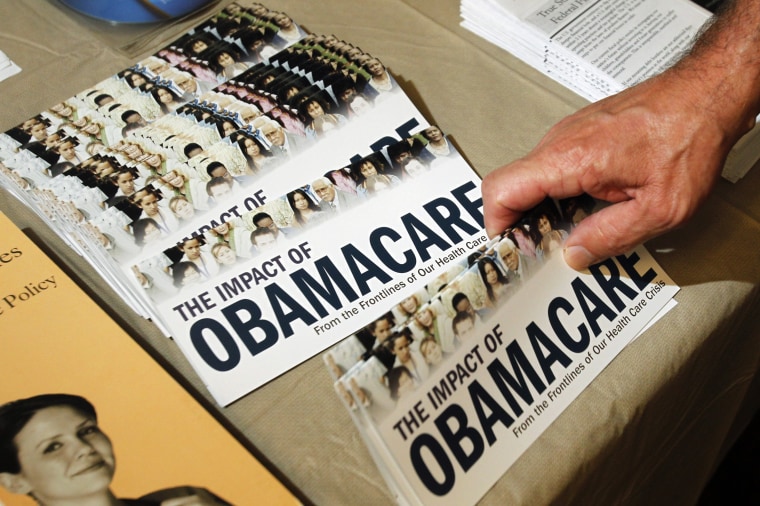About a year ago, Georgia Insurance Commissioner Ralph Hudgens
bragged to a crowd of fellow Republicans: "Let me tell you what we're doing [about ObamaCare]: Everything in our power to be an obstructionist."
It was a striking quote that quickly took on national significance. As a rule, policymakers at least pretend to care about working constructively, but here was a state official boasting about his deliberate embrace of obstructionism.
"I spoke to a Republican group in Rome, Ga., and I said I was going to be an obstructionist, but I can't be. I mean, I was talking to a Republican group and I was throwing them some red meat."
Hudgens added yesterday that the number of private insurers competing for Georgia consumers' business has nearly doubled -- these companies "took a wait and see attitude and now they've come in" -- which may expand the public's choices and possibly lower prices.
The Georgia Insurance Commissioner went to say he's still "not a fan" of the Affordable Care Act, "but there's nothing I can do about it."
Also yesterday, Oklahoma Gov.
Mary Fallin, a far-right Republican and fierce ACA critic "applied to participate in an Affordable Care Act program designed to help states develop innovative models for delivering care and reducing costs for participants in Medicaid, Medicare and the Children's Health Insurance Program" (thanks to
reader F.O.R. for the tip).
What do these stories have in common? They're emblematic of a sea change in the politics of health care.
The larger context doesn't fit into the narrative established earlier this year -- the Affordable Care Act is a political disaster for Democrats, which will help create a GOP "wave" in 2014 -- but it's nevertheless hard to miss for those who care to look.
Republican campaigns are
moving away from anti-ACA advertising; Republican candidates are increasingly
reluctant to say whether they intend to take ACA benefits away from constituents; other Republican candidates are grudgingly conceding that there's "
no doubt" the ACA has helped people; and we now see Republican officials embracing key elements of the ACA they used to reject.
What changed? As Sahil Kapur
reports, the fact that "Obamacare is working largely as intended" has created a new political framework.
In short, Obamacare is working largely as intended. More than 10 million Americans have gained coverage and the national uninsured rate is falling, with better results in states that embraced it. Some states which rejected the law's Medicaid expansion saw modest upticks in uninsured. The sprawling law has certainly created its share of losers, but many of the horror stories touted by opponents have turned out to be exaggerated or false. In Kentucky, Senate Minority Leader Mitch McConnell (R) has been tripped up by the fact that Obamacare has cut his state's uninsured rate by more than 40 percent. In Connecticut, early warnings of a 12.5 percent premium hike by one insurer turned out to be wrong; the insurer actually revealed it will lower its average premiums in 2015, albeit very slightly. As a result, Republicans have tamed their attacks on Obamacare, and national Democratic strategists are less worried about it hurting their candidates.
I'd be remiss if I neglected to note how quietly all of this is unfolding. Late last year, Republicans and much of the political establishment was convinced that the Affordable Care Act was Katrina and Watergate combined. This was a catastrophic disaster, we were told, that would destroy Obama's presidency and quite possibly ruin the very idea of progressive governance.
Every discouraging report was breaking news; every recipient of a cancellation letter had reporters knocking on their door.
Now that the ACA is succeeding and the politics winds have changed direction, it seems health care isn't generating nearly as many headlines.
